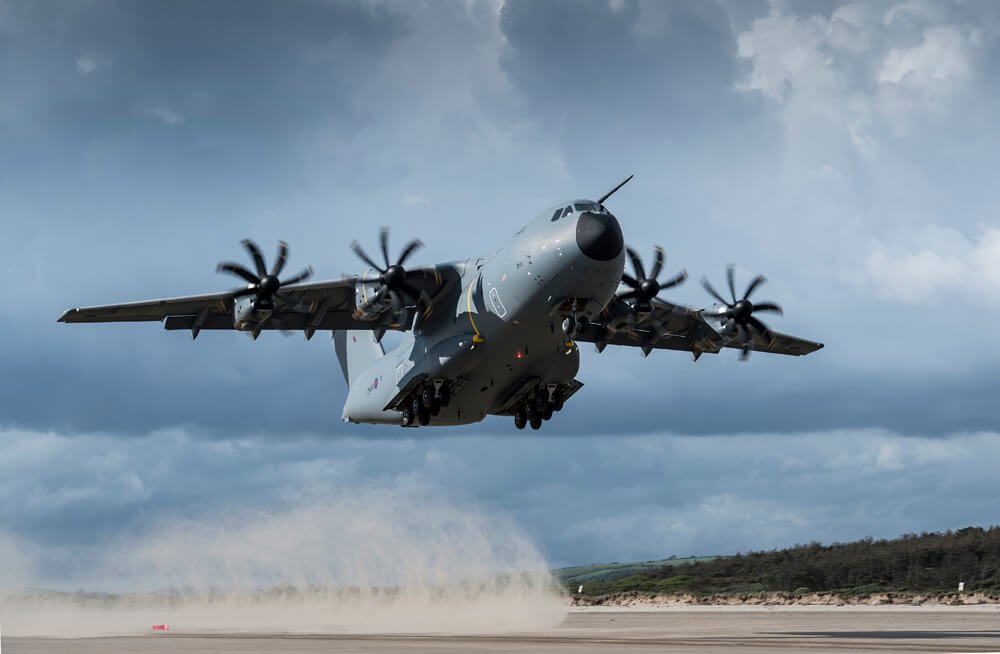Airdrop Evolution
Addressing the Challenge of
Airdrop Logistics
In recent decades, there has been a noticeable increase in ground-to-air threats in theatres of war. In autumn 2023, Problem Sponsor Major Aaron Thompson, from 47 Air Despatch Squadron, collaborated with a talented team of postgraduate students from Imperial College London. The problem? To address the challenge of delivering small to medium stores (weighing anywhere from 50kg to 2000kg) to operations amidst the advancements in Anti Access/Area Denial (A2AD) capabilities.
The team's task was to reimagine this logistical challenge, recognising its importance in contemporary warfare.
Threat Has Evolved
Aaron shed light on the shift in threat landscapes, highlighting the stark contrast between past theatres like Afghanistan, where aerial operations were largely unimpeded, to the current era characterised by the constant presence of ground-to-air threats. He underscored the urgency of adapting airdrop capabilities to this changing reality, particularly in modern warfare scenarios against peer or near-peer adversaries.
Aaron noted further: “I don’t see a theatre of operation that the UK would be involved in where there isn’t some form of ground-to-air threat present”.
Exploring Pathways to Solutions
Following detailed research undertaken during the 10-week Hacking4MoD module, the Imperial student team recommended three viable solutions; two that are commercially available, along with one in-house development opportunity, projecting immediate applicability and future bespoke capabilities.
The off-the shelf solutions include a GPS-guided parachute add-on and a semi-autonomous glider. The GPS-guided parachute employs flaring techniques for precise positioning, while the semi-autonomous glider navigates using GPS when deployed from the aircraft and can adjust and guide itself to the target, even if GPS signals are compromised. Although technologies like the Joint Precision Airdrop System (JPADS) have been commercially available for some time, the UK hasn’t previously invested in them due to the limited operational requirement. However, given the evolving threat landscape, these solutions remain as straightforward and cost-effective methods to achieve the necessary objectives.
Post-course, Aaron’s intention is to present these options to defence, advocating for their implementation through a robust business case backed by the students’ thorough analysis that justifies their necessity in the current defence landscape.
"If we are able to secure this capability, we would see a substantial improvement in our airdrop capability... We would be better able to support areas of conflict, where there is either a significant air threat or contested airspace."
From the Outside in: The Value of Non-Military Perspectives
Managing a team outside the conventional military framework provided a transformative experience for Aaron, introducing fresh and diverse perspectives and novel challenges. This included fostering innovative thinking and communication which go beyond traditional military networks.
"To have a team of 6-7 people who don’t operate and think and react in the same way that a military person does, to have to think and communicate with them differently, that in itself has been really valuable and something I’ve really enjoyed.”
Aaron emphasised the value of the team's swift access to external organisations when carrying out their discovery work, facilitated by Common Mission Project and Imperial College’s contacts and reputation, which enabled accelerated progress and unlocking opportunities which would otherwise be challenging to access within traditional military channels.
"They come with quite a degree of access, they certainly managed to get a foothold into some organisations significantly faster than I think some of us would have done doing this internally."
The Mission-Driven Paradigm: Building for the Future
Mission-driven is all about the end outcome, not the quick fix.
In contrast to task-focused approaches, Aaron underscored the significance of a mission-driven mindset, emphasising the need for enduring solutions aligned with long-term objectives in navigating the dynamic landscape of defence operations.
The collaboration between 47 Air Despatch Squadron and Imperial College London epitomises the convergence of diverse perspectives and mission-driven thinking. By addressing a longstanding logistical challenge, this initiative lays the groundwork for enhanced defence capabilities, showcasing the indispensable role of innovation, collaboration, and forward-thinking in shaping the future of military operations.
Have a problem of your own? Find out more about our H4MOD course and how to become a Problem Sponsor here.


